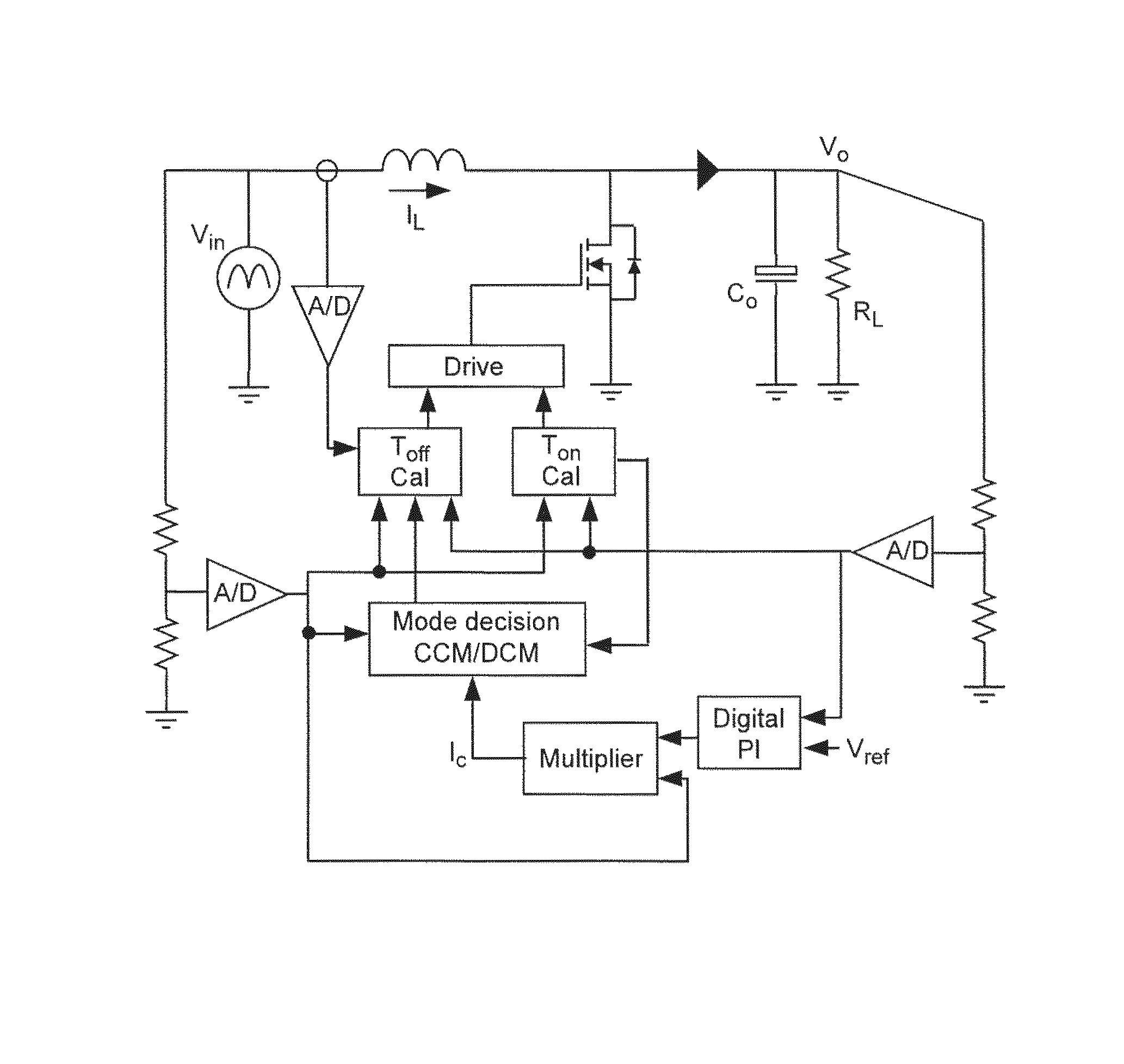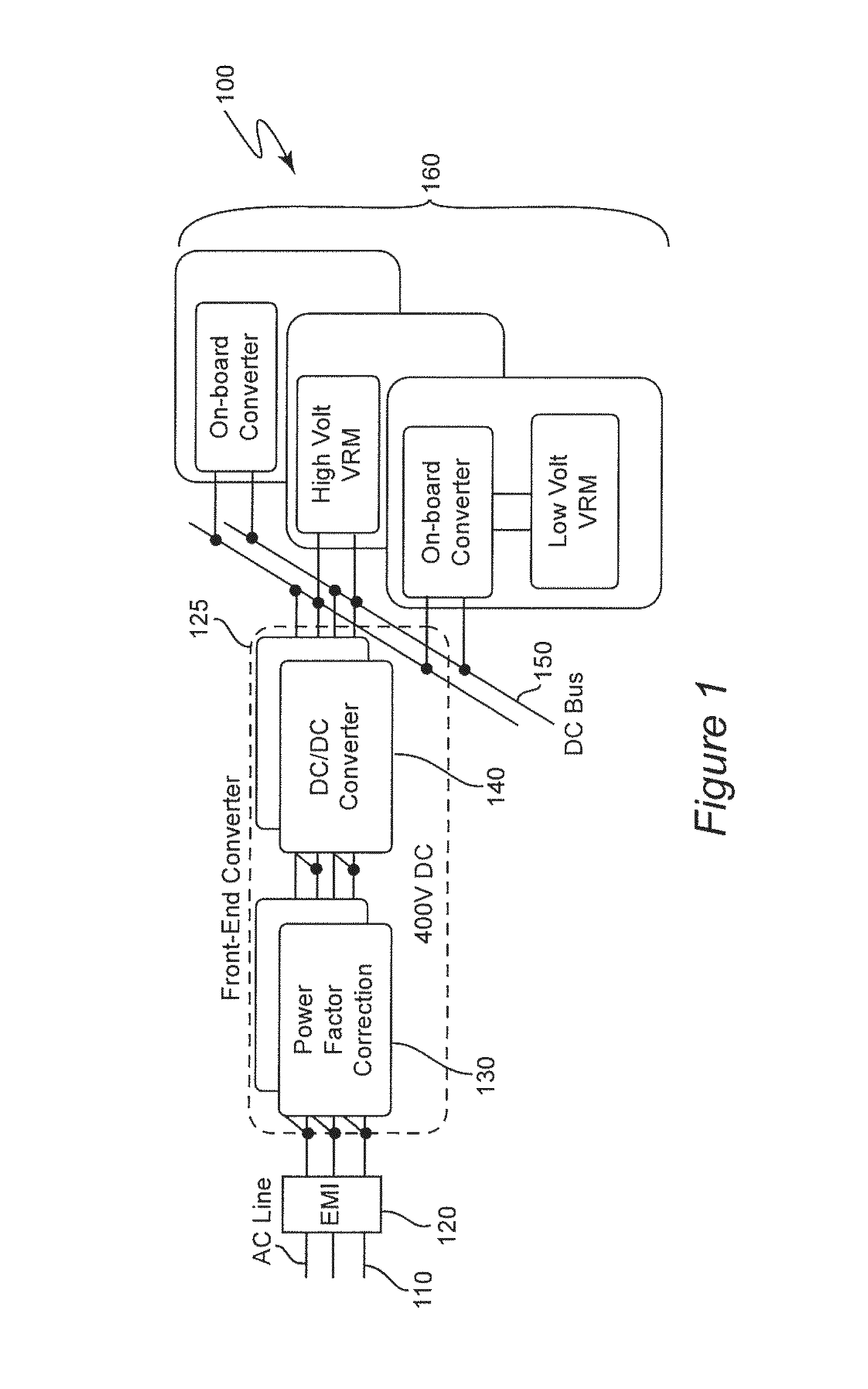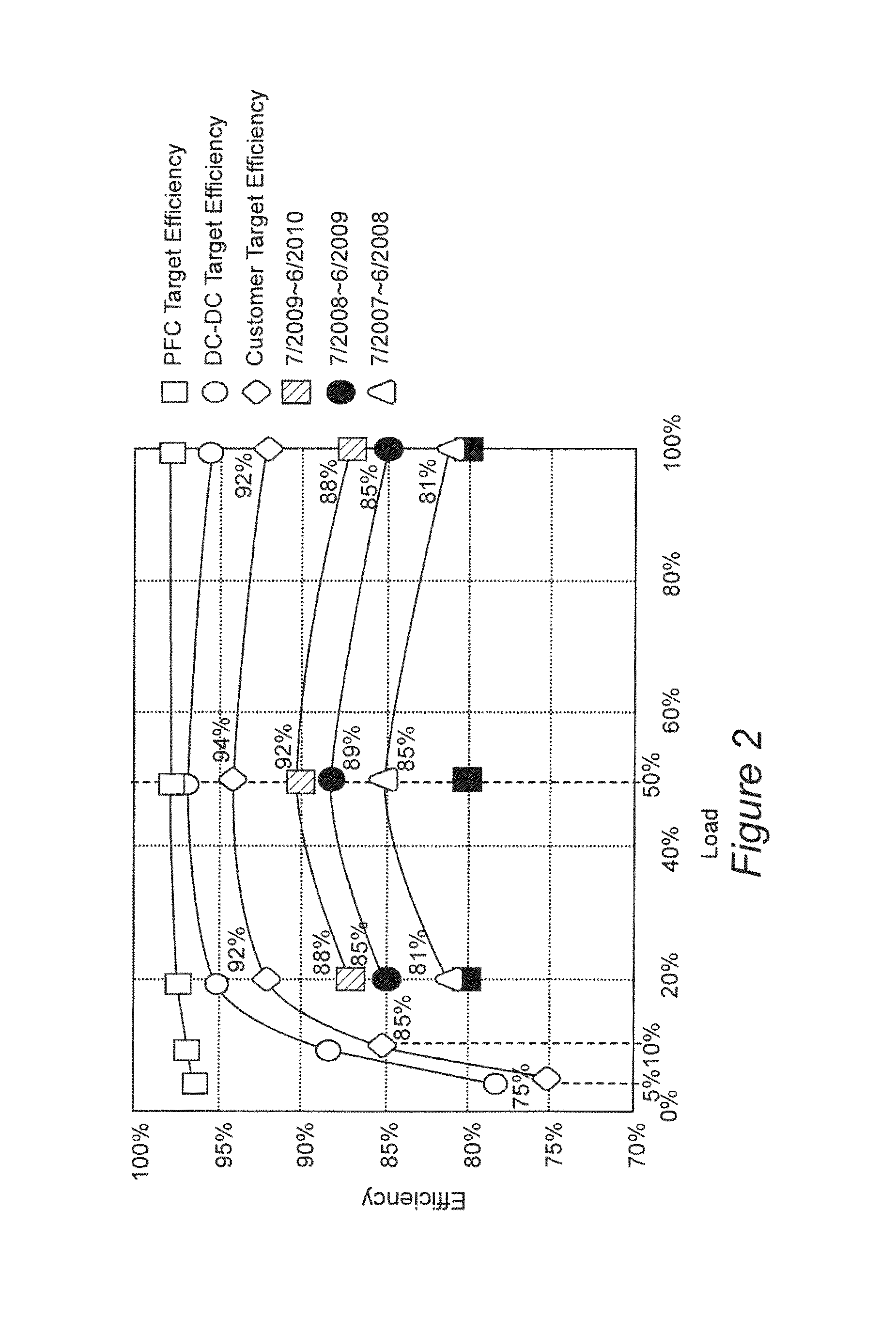Adaptive on-time control for power factor correction stage light load efficiency
a technology of power factor and light load, applied in the direction of electric variable regulation, process and machine control, instruments, etc., can solve the problems of compromising the cost and power density of the complete power converter, significant complexity, size and weight, etc., and achieve the effect of overall high efficiency
- Summary
- Abstract
- Description
- Claims
- Application Information
AI Technical Summary
Benefits of technology
Problems solved by technology
Method used
Image
Examples
Embodiment Construction
[0036]Referring now to the drawings, and more particularly to FIG. 1, there is shown a generalized high-level block diagram of an AC-DC converter 100 and its application to providing power to one or more systems within one or more electronic devices. AC power, for example, is initially provided from an AC distribution system 110 of one or more phases, three-phase power being illustrated as an example. It should be understood that power could alternatively be supplied from a DC source, such as a battery or DC generator such as a solar array. As alluded to above, an EMI filter 120 is generally provided to reduce noise from the front-end converter 125 and / or the load from being reflected back to the power source and / or radiated to the environment from which it could affect other devices or the power source, itself, such as by causing excess heating in a battery.
[0037]The front-end converter 125 includes a power factor correction (PFC) circuit 130 that develops DC power of approximately...
PUM
 Login to View More
Login to View More Abstract
Description
Claims
Application Information
 Login to View More
Login to View More - R&D
- Intellectual Property
- Life Sciences
- Materials
- Tech Scout
- Unparalleled Data Quality
- Higher Quality Content
- 60% Fewer Hallucinations
Browse by: Latest US Patents, China's latest patents, Technical Efficacy Thesaurus, Application Domain, Technology Topic, Popular Technical Reports.
© 2025 PatSnap. All rights reserved.Legal|Privacy policy|Modern Slavery Act Transparency Statement|Sitemap|About US| Contact US: help@patsnap.com



